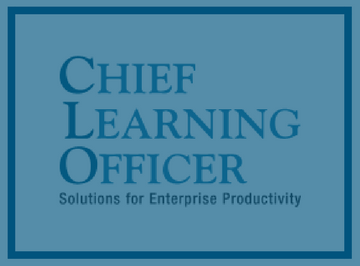Too Little Progress
Too Little Progress
Mia Radic credits a microcredential program with helping her find her dream job ahead of schedule.
Radic, a former supply chain specialist, took a series of graduate-level courses as part of the MicroMasters program developed and taught by universities and delivered by edX, a private company created by Harvard and MIT in 2012 as a portal for online learning. Other portals include Coursera, Udacity, and Udemy.
In the case of MicroMasters, programs feature courses from MIT and Harvard as well as more than a dozen other universities and cover subjects ranging from information technology and business management to data analytics and, in Radic’s case, supply chain management.
Radic told me via email that it takes determination to finish the program. She balanced full-time work with school and some assignments would consume an entire weekend. But the pros, like building a professional network and picking up new skills, outweighed the cons of trying to squeeze it all into a packed schedule.
The concept is interesting and is getting employers’ attention. In November, General Electric committed to interviewing any Massachusetts resident who completes a MicroMasters program in supply chain management, cybersecurity, cloud computing or artificial intelligence. But I’m concerned, not because I doubt GE’s commitment or the tremendous amount of work invested by Radic. Rather I’m not sure all employers will take the time to vet her story the way I did. And that could undervalue her credential.
Microcredentials, sometimes also known as badges, should work on a widespread basis. They are available to anyone and showcase their growing set of skills. They sync with the goals of groups like the Lumina Foundation to increase the number of Americans with postsecondary credentials and put more workers into the economy. They are also affordable. A MicroMasters from edX costs between $600 and $1,500.
Anant Agarwal, CEO of edX, said certain students who complete a MicroMasters can matriculate at places like MIT just because they have the credential. Boeing and General Electric recognize the MicroMasters as a bona fide way to advance an employee’s career. The MicroMasters, like many MOOCs offered by other schools, is open enrollment but can also be converted to traditional course credit.
However, there has to be a standard for these credentials or the holder of the certificate and their employer will be unclear about the value. A credential recognized by one company may be of no value to a job seeker knocking on another firm’s door.
Microcredential seekers face a conundrum with colleges, too. If, for example, a student obtains a microcredential provided by one school, what assurance is there that another college will recognize the credit?
That’s something corporations, schools and credentialing bodies must figure out for the benefit of all. It’s a matter of agreeing to uniformly give a weight to each microcredential. Certain credentials such as the Series 6 license given by the Financial Industry Regulatory Authority demonstrate a universally accepted, clear competency. The Project Management for Development Professionals certification is a globally recognized credential. Both of these are portable for the individual and the credentials are valued equally by employers.
Some universities and companies have decided delivering microcredentials is an opportunity to recruit students and employees and maybe even make education more affordable and portable. Other corporations and some professional certification bodies don’t yet see microcredentials as a road to jobs or promotions; for them, the microcredential is just another academic model.
As with many things, millennials might tilt the balance. They want credentials that are portable, “postable” and prestigious. If you’re a CLO on the sideline in this debate, it’s time to speak up. Engage with the companies delivering and certifying these microcredentials. Tell them what it will take to make these credentials meet employer’s demands and your employees’ needs.
By providing the leadership necessary to standardize microcredentials, you will potentially draw talented graduates to your organization. As an added bonus, the effort will also help you shape the credentials so they inculcate students with your business approach.

This column was originally published in CLO.